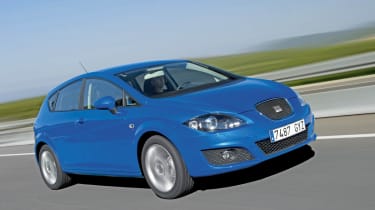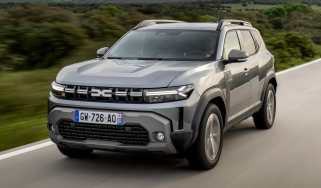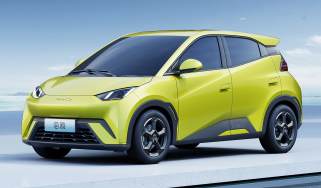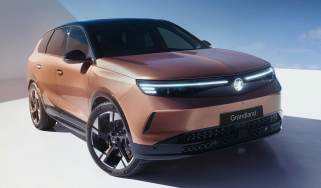SEAT Leon 2.0 TDI
New diesel adds extra appeal to line-up

Replacing the 2.0-litre PD TDI engine with a modern 2.0 TDI featuring common-rail technology is a no-brainer on SEAT’s part. The new unit loses a touch of the old engine’s outright punch, but greatly improved economy, lower emissions and a wider spread of power mean it’s a pleasure to use. The fact it also brings greatly increased smoothness and refinement makes the Leon a more appealing product. It’s the best engine in the range for both family and business buyers.
Meet the Leon that promises to be a real smooth operator. This 138bhp 2.0-litre TDI model is the latest SEAT to benefit from common-rail diesel technology from parent firm Volkswagen. Does that make it the best Leon you can buy?
By replacing the old 2.0-litre PD TDI engine with a much more refined common-rail unit, SEAT has also cleaned up the Leon’s act. So, while power and torque remain the same, fuel economy in this six-speed manual version goes from 50.4mpg to 58.9mpg on the combined cycle.
Video: watch CarBuyer's video review of the SEAT Leon
[[{"type":"media","view_mode":"content_narrow","fid":"69200","attributes":{"alt":"","class":"media-image"}}]]
Emissions are also down to 125g/km, which is enough to drop the car by two road tax brackets to Band D. That means buyers don’t pay any duty in the first year and £90 annually after that – a saving of £35 over the old engine.
More reviews
Car group tests
In-depth reviews
Long-term tests
Road tests
Used car tests
Available in SE and Sport trims, the new engine means that SEAT’s entire diesel range now uses VW common-rail technology. On the road, this is significant. There’s still a touch of that familiar diesel engine clatter at idle, but it’s far reduced compared to the outgoing PD TDI, which was very noisy indeed.
Under acceleration, the difference between the two engines is even more obvious, with a much quieter and smoother power delivery.
Where the PD TDI seemed to produce its torque in a big chunk between 2,000rpm and 4,000rpm, this new engine revs more cleanly across a wider range. The difference is shown by a slight drop in
the time for the benchmark sprint from 0-62mph – it’s now two-tenths of a second slower at 9.5 seconds.
But while some drivers may miss the big rush of torque, most are likely to appreciate the silkier way this Leon moves up through the gears.
A six-speed twin-clutch DSG is available, too, which is quick and seamless in its changes.
Otherwise it’s business as usual for SEAT’s five-door hatch. The relatively firm set-up and direct steering make it feel quite sporty and involving, even with this moderately powered diesel under the bonnet. There’s no doubt that the 2.0-litre TDI is the pick of the line-up.



